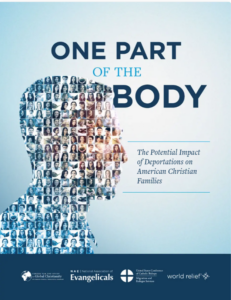
BIRMINGHAM, Ala. (BP)–The 16th- and 17th-century Puritans stand as proof that 21st-century Christians can build their understanding of marriage and family upon the foundation of Scripture, a noted minister said at the 20th annual meeting of the Southern Baptist Founders Conference July 16-19 at Samford University.
Erroll Hulse, addressing the conference topic of “Learning from the Puritans,” said the Puritans — often falsely maligned as long-faced killjoy Christians — have much to teach modern believers by their biblical understanding and example in marriage and family.
Hulse is an associate pastor of Leeds Reformed Baptist Church in Yorkshire, England. He is editor of Reformation Today magazine and has authored a number of books including “An Introduction to the Puritans.”
Hulse voiced credit to three generations of Puritan pastors for establishing today’s understanding of Christian marriage, family and the home.
“Since about the 1960s a massive spiritual attack has been made on the Christian view of marriage and family,” Hulse said. “We should follow the example of the Puritans to seek to restore the honor of marriage after the damage done to that institution by the liberal establishment.
“We must pray for leadership, that is, for contemporary reformers, and pray for and work toward a major recovery of biblical thinking about sex and marriage in our generation.”
The Puritans lived in the 16th and 17th centuries first in England and later in America. They were called “Puritans” because they sought to purify the Church of England of all remaining vestiges of medieval Roman Catholicism and establish a more biblical understanding of faith, practice and worship.
While Baptists would heartily disagree with their decision to remain in a state-sanctioned church, Hulse said contemporary Baptists can learn much from both their belief and practice. The Puritans sought to be truly pious in their daily living and strong in their understanding of Scripture, bringing it to bear on every facet of life.
Puritans who are still widely read today include John Bunyan, author of “Pilgrim’s Progress,” John Owen, Matthew Henry and Richard Baxter.
Primary among the Puritan understanding of family was their belief that the Scriptures firmly establish both marriage and sex as gifts ordained by God. The Puritans saw sex within marriage as existing both for procreation and pleasure.
“Leland Ryken has well said the Puritan doctrine of sex was a watershed in the cultural history of the West,” Hulse said. “The Puritans devalued celibacy, glorified marriage, affirmed married sex as both necessary and pure, established the ideal of wedded romantic love, and exalted the role of the wife.”
With nearly 60 percent of marriages among professed believers ending in divorce today, Hulse said the Puritan teaching on marriage serves as a biblical remedy to our “quickie-divorce” culture.
Said Hulse, “The Puritan ethic of marriage was not to look for a partner whom you do love passionately at this moment, but rather for one you can love steadily as your best friend for life, and then proceed with God’s help to do just that.
“Thomas Manton declared that marriages are made in heaven before they are made on earth, and Daniel Rogers, son of [Puritan preacher] John Rogers of Dedham commented on what today we call ‘falling in love’ like this: ‘Marriage love is often a secret work of God, pitching the heart of one party upon another for no known cause; and therefore when this strong lodestone attracts each to the other, no further questions need to be made but such a man and such a woman’s match were made in heaven, and God has brought them together.'”
Puritans took the stated order of matrimony found in the Church of England’s “Book of Common Prayer” and reversed it. The Book of Prayer order posited that matrimony is first ordained for procreation, second as a remedy against fornication and third for “the mutual society, help and comfort that the one ought to have for the other.”
The Puritans reversed this order and Baptists recognized this change in the marriage article in The Baptist Confession of Faith of 1869 which reads: “God instituted marriages for the mutual help of husband and wife, for the increase of mankind in accordance with his laws and for the prevention of immorality.”
The Puritans held forth a clearly biblical foundation for the duties of husbands and wives based upon Genesis 2 and Ephesians 5, Hulse said. They saw the first duty of husbands and wives as to love each other entirely in accord with Ephesians 5:25,28 and 33. Husbands and wives also were to be helpers of each other’s salvation. The article on marriage in the Baptist Faith & Message 2000 reflects this view.
Said Hulse, “They were to stir up each other to faith, love and obedience, and good works; to warn and help each other against sin and all temptations; to join in God’s worship in the family and in private; to prepare each other for the approach of death and comfort each other in the hope of eternal life.”
For the husband and father, the Puritans asserted the biblical doctrine of headship. That is, the husband and father is the accountable head for what takes place in the family and is the provider for and protector of his wife and children, Hulse said. The husband is responsible for the spiritual development and biblical instruction of the wife and children.
Fathers sought to equip their sons and daughters with a thorough knowledge of Scripture beginning at an early age, he said.
“The headship is not a ticket to privilege but a charge to responsibility,” Hulse said. “It is not tyranny, but leadership based on love.”
To the Puritans, concern for family extended to live-in servants and the elderly, who were cared for in the home until death and not relegated to retirement homes, he said.
“The Puritans esteemed the family as the basic unit of society and aimed that it be a little church in itself with the husband as its pastor and his wife as assistant,” Hulse said. “Puritan pastors believed fervently that the family was the foundational unit of a godly society.
“The Puritan ethic was to train up children in the way they should go, to care for their bodies and souls together, and to educate them for sober, godly, socially useful adult living. The Puritan way of home life was based on maintaining order, courtesy and family worship.”
–30–













